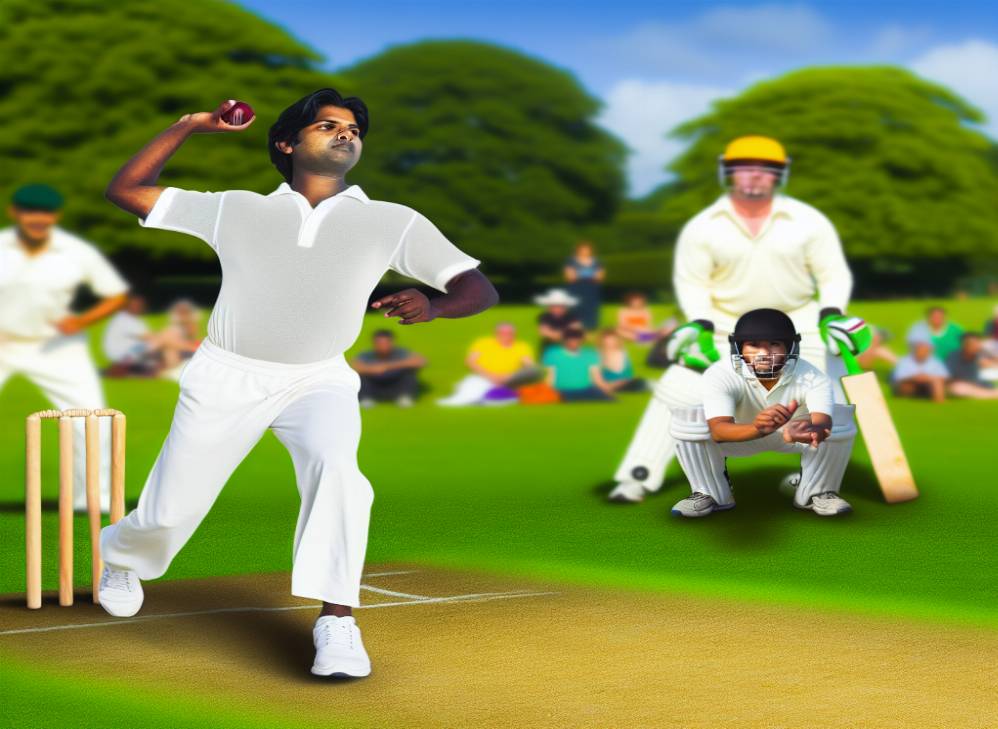The Inclusion of Cricket in the Olympics
Cricket has a long and storied history as a popular sport around the world, particularly in countries like India, Australia, England, and South Africa. With its global appeal and passionate fan base, many have argued that cricket should be included in the Olympics. The addition of cricket to the Olympic Games would not only bring a new and exciting element to the event, but also help to further promote the sport on an international level.
One of the main arguments in favor of including cricket in the Olympics is the potential for increased participation and interest in the sport. By showcasing cricket on the world stage at the Olympics, more people may be inspired to take up the sport and join local clubs and leagues. This could lead to a growth in the popularity of cricket in countries where it is not traditionally a major sport, helping to diversify the Olympic program and attract a wider range of athletes and fans.
While there are logistical challenges to overcome, such as scheduling and venue requirements, the benefits of including cricket in the Olympics could outweigh any potential drawbacks. The opportunity to see top international teams compete for Olympic gold in cricket would be a thrilling spectacle for fans and players alike, and could help to solidify cricket”s status as a truly global sport.
History of Cricket in Olympics
Cricket has a long and storied history in the Olympics, dating back to the first modern Games in 1896. The sport was initially included in the program, but it was later removed due to lack of interest and participation. However, cricket made a comeback in the 1900 Paris Olympics and was played again in 1904 in St. Louis, Missouri.
Since then, cricket has had a tumultuous relationship with the Olympics, with the sport being included in some Games and excluded in others. For more information on the history of cricket in the Olympics, you can visit the official olympics website.
Despite its ups and downs, cricket remains a beloved sport around the world, with millions of fans tuning in to watch international matches and tournaments. While the future of cricket in the Olympics may be uncertain, its rich history and cultural significance continue to captivate audiences everywhere.
Arguments for Cricket Inclusion
One argument for including cricket in casinos is its popularity among a global audience. Cricket is one of the most popular sports in many countries, including India, Australia, England, and South Africa. By offering cricket betting options, casinos can attract a larger and more diverse customer base.
Another argument for including cricket in casinos is the potential for increased revenue. Cricket matches can attract a large number of viewers, both in person and through television broadcasts. By offering betting options on these matches, casinos can capitalize on the popularity of the sport and generate additional income.
Additionally, including cricket in casinos can enhance the overall entertainment experience for customers. Many sports fans enjoy betting on their favorite teams and players, and adding cricket to the mix can provide them with a new and exciting betting option.
Furthermore, including cricket in casinos can help to attract a younger demographic. Cricket is a popular sport among younger audiences, and by offering betting options on cricket matches, casinos can appeal to this demographic and attract a new generation of customers.
In conclusion, there are several compelling arguments for including cricket in casinos, including its global popularity, revenue potential, entertainment value, and appeal to younger audiences. By adding cricket to their offerings, casinos can attract a larger and more diverse customer base and enhance the overall customer experience.
Challenges in Including Cricket
Cricket is a popular sport that has a huge following around the world, but it poses several challenges when it comes to including it in casinos. One of the main challenges is the length of cricket matches, which can last anywhere from several hours to several days. This makes it difficult for casinos to schedule games and accommodate players who may not have the time to sit through an entire match.
Another challenge is the complexity of cricket betting, which involves a wide range of markets and options for players to choose from. This can be overwhelming for casual bettors who may not be familiar with the sport or its rules. Casinos would need to invest in training their staff and educating their players in order to offer cricket betting successfully.
Additionally, cricket matches can be unpredictable, with unexpected outcomes and upsets that can result in significant losses for casinos. This makes it risky for casinos to offer cricket betting, as they may not be able to accurately predict the results of matches and manage their risk effectively.
Lastly, cricket may not have as large a fan base in certain regions where casinos are located, which could limit the potential for revenue from cricket betting. Casinos would need to assess the demand for cricket betting in their target markets and determine if it is worth the investment to include it in their offerings.
Impact of Cricket on Olympics
Cricket has a long and storied history, dating back to the 16th century in England. It has since become one of the most popular sports in the world, with a massive following in countries such as India, Australia, and England.
Despite its popularity, cricket has struggled to gain a foothold in the Olympics. The sport was included in the 1900 Paris Olympics, but has not been a part of the games since. This is largely due to issues such as scheduling conflicts, the length of matches, and the dominance of a few powerhouse teams.
However, there has been a recent push to include cricket in future Olympics, with the International Cricket Council (ICC) lobbying for its inclusion. Proponents argue that the global reach of cricket would bring in new audiences and revenue streams for the Olympics, while also providing a platform for smaller cricketing nations to showcase their talent.
Ultimately, the impact of cricket on the Olympics remains to be seen. While there are certainly challenges to overcome, there is no denying the potential benefits that the inclusion of cricket could bring to the games. Only time will tell if cricket will once again become a part of the Olympic program.
Potential Future of Cricket
Cricket has always been a popular sport in many countries around the world, with a rich history and tradition that dates back centuries. The potential future of cricket looks bright, with the sport continuing to grow in popularity and reach new audiences. One of the key factors driving this growth is the increasing commercialization of the sport, with big money sponsorships and broadcasting deals helping to raise the profile of cricket on a global scale.
Another factor contributing to the potential future of cricket is the increasing focus on developing the sport at the grassroots level. Many cricket boards and associations are investing heavily in youth development programs and infrastructure, which is helping to nurture the next generation of cricketing talent. This focus on grassroots development is crucial for the long-term sustainability of the sport and will help to ensure that cricket continues to thrive in the years to come.
Technological advancements are also playing a key role in shaping the potential future of cricket. From the use of advanced analytics to improve player performance, to innovations in broadcasting technology that enhance the viewing experience for fans, technology is helping to take the sport to new heights. With the rise of virtual reality and augmented reality, the way we consume cricket matches is likely to undergo a dramatic transformation in the coming years.
Overall, the potential future of cricket looks promising, with the sport set to continue its growth and evolution in the years to come. With a strong focus on commercialization, grassroots development, and technological innovation, cricket is well positioned to capture the hearts and minds of fans around the world and cement its status as one of the most popular sports on the planet.



